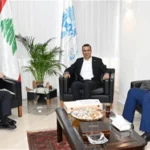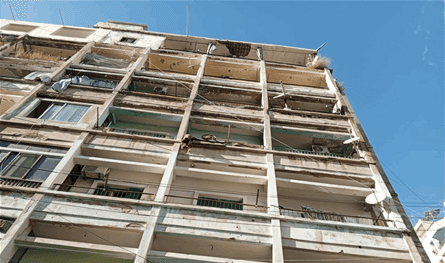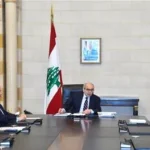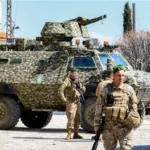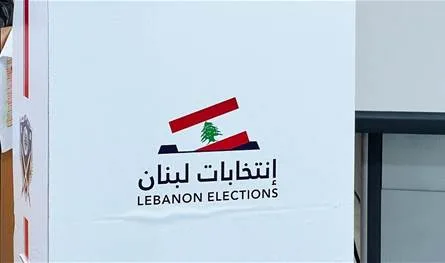
Kamal Thebian wrote in “Al Diyar”: The President of the Republic, Joseph Aoun, the Speaker of the House of Representatives, Nabih Berri, and the Prime Minister, Nawaf Salam, confirm that the parliamentary elections are taking place on time, and municipal and elective elections have previously been held, with the beginning of a new era, a new government, and difficult military conditions with the continuation of the Israeli attacks, and the failure of the displaced to return to their cities and villages, and the government succeeded in carrying out the entitlement. Municipal and optional, and received external support.
Lebanese officials received messages from decision-making and influential countries in Lebanon, especially from America, encouraging and urging them to hold parliamentary elections on time. Informed sources reveal that America and its allied countries see the political moment as ripe for the “Shiite duo” to pay the price for its monopoly on Shiite representation with a closed parliamentary bloc of 27 representatives, which it obtained in the elections. 2022, and the current American administration is working to create a breach in the “Shiite bloc” and to weaken the Christian “Free Patriotic Movement” bloc, which suffered from the leakage of representatives from its bloc, and the rebellion of others against its president, Gebran Bassil.
The American administration, headed by Donald Trump, is looking forward to the establishment of a parliament in which its allies will obtain a majority, as happened in the 2005 elections, after the assassination of Prime Minister Rafik Hariri. The March 14 team obtained the majority, through a four-way alliance that included “Amal” and “Hezbollah.”
And the “Future Movement” and the Socialist Party, and US President George W. Bush insisted at the time that the elections be held according to what was called the “Ghazi Kanaan” law, and he did not accept a new law, and it is the same “scenario” that is repeated in this session, in which the Trump administration will request that it obtain the current law, to secure a parliamentary majority loyal to American policy, and that the elections held by the new Syrian authority headed by Ahmed Al-Sharaa a few days ago, It will happen in Lebanon, next spring.
This American approach will be implemented in Lebanon, to establish a government completely loyal to America, through the upcoming parliamentary elections, that is, it will be sponsored by Awkar.
Sabine Owais wrote in “An-Nahar”: Representatives nominated for a new parliamentary session act on the basis that the elections are taking place on time. In this scene, the question arises about the representatives who disobeyed the Aounist House after Representative Gebran Bassil took the reins of the Orange Movement. The reality is more than one question: Who will run, who will return to the parliamentary session, according to what alliances, and with what preferential votes? The first rain came when Representative Ibrahim Kanaan launched his campaign at a huge dinner he held at the Al Habtoor Hotel. Ironically, it came the evening after the Engineers Syndicate dinner, which Bassil attended. Former MP Michel Pharaoh sat to his right, while Kanaan sat at an adjacent table. It may be too early to talk about electoral alliances, but the magnitude of the festival held by Kanaan and the resentful reactions among Bassil opened the battle, without that meaning that its features have become clear. The confirmed alliance so far includes Kanaan and Vice President of the Council Elias Bou Saab, while the image of the alliance with the Dashnag party is supposed to crystallize at a later stage, noting that the high representation of the Dashnag delegation at Kanaan’s dinner gave the impression that the alliance’s potential is great. Accordingly, the body will be faced with four regulations. In addition to the Kanaan-Bou Saab alliance and perhaps the Tashnag, there is a list of “Forces,” another for the Phalange, and a fourth for the Free Patriotic Movement, which nominates former MP Eddie Maalouf and is allied with MP Michel Murr. Note that the votes of the Dashnaks and the Syrian National Party will shape the direction of the candidates. If these voices join the Kanaan-Bou Saab alliance, the Al-Murr movement duo will lose the ability to secure results, and the competition between them will be intense.
In any case, Kanaan presented himself as a strong candidate in Matn through his first electoral appearance, which will be followed by a second appearance after hundreds were unable to reach the Habtoor Hotel, according to what circles in Kanaan’s machine revealed. Thus, he opened the battle early and forced the other forces to oil their machines, knowing that the goals of Kanaan and Bou Saab go further in the direction of a cross-district electoral scene that does not depend on the mainland, but rather extends to other districts, not against the backdrop of targeting the Free Patriotic Movement in its strongholds, but rather based on a project that the electoral machine calls the slogan “the project of building the state and its institutions.”
Gabriel Murad wrote in “Nidaa al-Watan”: A week has passed since the work of the Sub-Committee on the Election Law was suspended, to make room for political communications to bring viewpoints closer and to bring the boycotters back to the meetings. However, information from “Call of the Nation” indicates that the door to negotiation has not begun yet, and that each party is still in its position. There are those at the committee table who say that the House of Representatives’ rules of procedure require discussion of the proposals on the agenda. Therefore, it is not possible to skip over the items referred to the committee, and logic requires discussion and approval or rejection. As for canceling the debate, “it is a parliamentary dictatorship that we will not practice.” On the other hand, the boycotters say that “the ongoing discussions did not lead to a result, and that to break the cycle in a vicious circle requires going to the general assembly to vote, instead of wasting time, endangering the expatriates’ vote, and exposing the electoral entitlement in turn to the risks of postponement.” This point is responded to by those who want to continue discussions in the subcommittee by saying, “Going to the general assembly before political consensus will not lead to a solution.” They conclude that “all this difference in viewpoints comes down to politics, and the best place for political understandings, acceptance and rejection is at the subcommittee table.” Amid this scene, it seems that both sides prefer to “play on the edge of the abyss.” Neither of them wants to reveal all of his cards early, but rather to exert political and media pressure until the hour of settlement comes, or “with a lot of knocking the weld is broken,” meaning that one party concedes to the other, or the same circumstances impose on everyone to move to the “second edge.”












